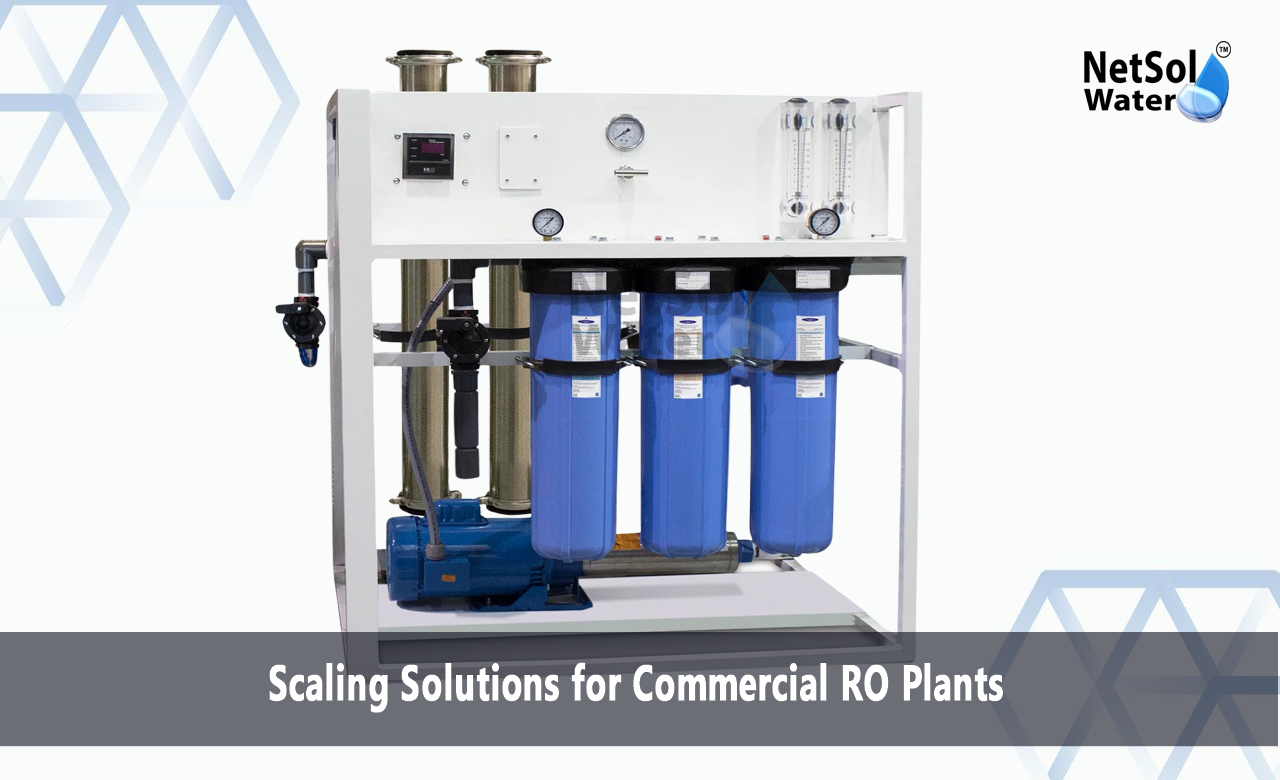What are Scaling Solutions for Commercial RO Plants?
Every commercial RO plant faces a persistent challenge that threatens to undermine its efficiency - scaling. This accumulation of mineral deposits on membranes creates significant problems in reverse osmosis systems. Plant operators worldwide understand how scaling affects their operations through increased energy costs decreased water production and shortened membrane life. Understanding scaling solutions becomes essential because these issues directly impact the bottom line of businesses that depend on RO systems. Modern industrial processes demand clean water which makes RO technology indispensable across various sectors including manufacturing pharmaceuticals and food production.
We will examine proven methods backed by research and real-world applications to help plant operators maintain peak performance in their RO systems. The following sections detail specific strategies equipment modifications and treatment options that work together to create a comprehensive scaling prevention program.
Understanding Scale Formation in RO Systems
Scale formation presents one of the biggest operational challenges in commercial RO plants. The process begins when dissolved minerals in the feed water become concentrated during the reverse osmosis process. These concentrated minerals eventually form crystalline deposits on membrane surfaces. Let us explore the fundamental aspects of scale formation and its implications for RO plant operations.
Types of Scale Deposits
Calcium carbonate creates the most common type of scale in RO systems. This white crystalline deposit forms when calcium and carbonate ions join together under specific conditions. Calcium sulfate presents another frequent scaling problem which forms harder deposits that prove more difficult to remove. Silica scale occurs in systems processing water with high silica content. This type of scale forms an extremely hard layer that often requires membrane replacement.
Factors Influencing Scale Formation
Temperature plays a significant role in scale development. Higher temperatures speed up the chemical reactions that lead to scale formation. The pH level of feed water affects which types of scale are most likely to form. Feed water composition determines the concentration of scale-forming minerals present in the system. Recovery rates impact how concentrated these minerals become during the RO process.
Early Warning Signs of Scaling
Pressure differential increases across membrane elements indicate potential scaling issues. Decreased permeate flow rates suggest scale buildup on membrane surfaces. Salt passage increases as scale interferes with proper membrane function. Regular monitoring of these parameters helps identify scaling problems before they cause serious damage.
Preventive Measures and Treatment Solutions
Prevention offers the most effective approach to handling scaling issues in commercial RO plants. A well-designed prevention program saves money and extends equipment life. Let us examine the key components of successful scale prevention strategies.
Pretreatment Systems: Media filtration removes suspended solids that could contribute to scaling. Water softening exchanges scale-forming calcium and magnesium ions with sodium ions. Carbon filtration addresses organic compounds that might enhance scale formation. These pretreatment steps work together to prepare feed water for the RO process.
Chemical Treatment Programs: Antiscalants prevent scale formation by interfering with crystal growth. These chemicals keep scale-forming ions dispersed in the concentrate stream. Proper dosing depends on feed water analysis and system operating conditions. Regular testing ensures optimal chemical performance.
pH Adjustment Techniques: Acid injection helps control scaling by keeping pH levels in an optimal range. This approach proves particularly effective for calcium carbonate scale prevention. Careful monitoring maintains proper pH levels throughout the system. Automatic control systems provide consistent pH management.
Maintenance and Monitoring Strategies
Regular maintenance and monitoring form the foundation of effective scaling control. These practices help identify potential problems before they impact system performance. Let us review essential maintenance and monitoring approaches for scale prevention.
Membrane Cleaning Protocols: Regular cleaning removes scale deposits before they become severe. Different cleaning solutions target specific types of scale. Proper cleaning procedures protect membrane integrity. Documentation of cleaning results helps track system performance over time.
Performance Monitoring Systems: Online monitoring equipment provides real-time data about system operation. Regular data analysis identifies trending problems. Performance tracking helps optimize chemical dosing. Historical data supports maintenance planning decisions.
Operator Training Programs: Skilled operators recognize early signs of scaling problems. Training programs build understanding of scale formation mechanisms. Hands-on experience with monitoring equipment improves data interpretation. Regular skill updates keep operators current with best practices.
Take Action for Better Water Treatment:
Take control of scaling issues in your commercial RO plant today. Our team of water treatment specialists will analyze your system and develop a customized scaling solution. Contact us to schedule a comprehensive system evaluation. We will help you protect your investment and optimize your RO plant performance.
Netsol Water is Greater Noida-based leading water & wastewater treatment plant manufacturer. We are industry's most demanding company based on client review and work quality. We are known as best commercial RO plant manufacturers, industrial RO plant manufacturer, sewage treatment plant manufacturer, Water Softener Plant Manufacturers and effluent treatment plant manufacturers. Apart from this 24x7 customer support is our USP. Call on +91-9650608473, or write us at enquiry@netsolwater.com for any support, inquiry or product-purchase related query.



